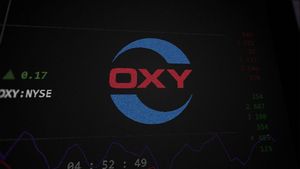
Menlo Park, CA – October 2, 2025 – In a strategic move poised to redefine the future of artificial intelligence infrastructure and solidify its ambitious metaverse vision, Meta Platforms (NASDAQ: META) has significantly accelerated its investment in custom AI chips. This commitment, underscored by recent announcements and a pivotal acquisition, signals a profound shift in how the tech giant plans to power its increasingly demanding AI workloads, from sophisticated generative AI models to the intricate, real-time computational needs of immersive virtual worlds. The initiative not only highlights Meta's drive for greater operational efficiency and control but also marks a critical inflection point in the broader semiconductor industry, where vertical integration and specialized hardware are becoming paramount.
Meta's intensified focus on homegrown silicon, particularly with the deployment of its second-generation Meta Training and Inference Accelerator (MTIA) chips and the strategic acquisition of chip startup Rivos, illustrates a clear intent to reduce reliance on external suppliers like Nvidia (NASDAQ: NVDA). This move carries immediate and far-reaching implications, promising to optimize performance and cost-efficiency for Meta's vast AI operations while simultaneously intensifying the "hardware race" among tech giants. For the metaverse, these custom chips are not merely an enhancement but a fundamental building block, essential for delivering the scale, responsiveness, and immersive experiences that Meta envisions for its next-generation virtual environments.
Technical Prowess: Unpacking Meta's Custom Silicon Strategy
Meta's journey into custom silicon has been a deliberate and escalating endeavor, evolving from its foundational AI Research SuperCluster (RSC) in 2022 to the sophisticated chips being deployed today. The company's first-generation AI inference accelerator, MTIA v1, debuted in 2023. Building on this, Meta announced in February 2024 the deployment of its second-generation custom silicon chips, code-named "Artemis," into its data centers. These "Artemis" chips are specifically engineered to accelerate Meta's diverse AI capabilities, working in tandem with its existing array of commercial GPUs. Further refining its strategy, Meta unveiled the latest generation of its MTIA chips in April 2024, explicitly designed to bolster generative AI products and services, showcasing a significant performance leap over their predecessors.
The technical specifications of these custom chips underscore Meta's tailored approach to AI acceleration. While specific transistor counts and clock speeds are often proprietary, the MTIA series is optimized for Meta's unique AI models, focusing on efficient inference for large language models (LLMs) and recommendation systems, which are central to its social media platforms and emerging metaverse applications. These chips feature specialized tensor processing units and memory architectures designed to handle the massive parallel computations inherent in deep learning, often exhibiting superior energy efficiency and throughput for Meta's specific workloads compared to general-purpose GPUs. This contrasts sharply with previous approaches that relied predominantly on off-the-shelf GPUs, which, while powerful, are not always perfectly aligned with the nuanced demands of Meta's proprietary AI algorithms.
A key differentiator lies in the tight hardware-software co-design. Meta's engineers develop these chips in conjunction with their AI frameworks, allowing for unprecedented optimization. This synergistic approach enables the chips to execute Meta's AI models with greater efficiency, reducing latency and power consumption—critical factors for scaling AI across billions of users and devices in real-time metaverse environments. Initial reactions from the AI research community and industry experts have largely been positive, recognizing the strategic necessity of such vertical integration for companies operating at Meta's scale. Analysts have highlighted the potential for significant cost savings and performance gains, although some caution about the immense upfront investment and the complexities of managing a full-stack hardware and software ecosystem.
The recent acquisition of chip startup Rivos, publicly confirmed around October 1, 2025, further solidifies Meta's commitment to in-house silicon development. While details of the acquisition's specific technologies remain under wraps, Rivos was known for its work on custom RISC-V based server chips, which could provide Meta with additional architectural flexibility and a pathway to further diversify its chip designs beyond its current MTIA and "Artemis" lines. This acquisition is a clear signal that Meta intends to control its destiny in the AI hardware space, ensuring it has the computational muscle to realize its most ambitious AI and metaverse projects without being beholden to external roadmaps or supply chain constraints.
Reshaping the AI Landscape: Competitive Implications and Market Dynamics
Meta's aggressive foray into custom AI chip development represents a strategic gambit with far-reaching consequences for the entire technology ecosystem. The most immediate and apparent impact is on dominant AI chip suppliers like Nvidia (NASDAQ: NVDA). While Meta's substantial AI infrastructure budget, which includes significant allocations for Nvidia GPUs, ensures continued demand in the near term, Meta's long-term intent to reduce reliance on external hardware poses a substantial challenge to Nvidia's future revenue streams from one of its largest customers. This shift underscores a broader trend of vertical integration among hyperscalers, signaling a nuanced, rather than immediate, restructuring of the AI chip market.
For other tech giants, Meta's deepened commitment to in-house silicon intensifies an already burgeoning "hardware race." Companies such as Alphabet (NASDAQ: GOOGL), with its Tensor Processing Units (TPUs); Apple (NASDAQ: AAPL), with its M-series chips; Amazon (NASDAQ: AMZN), with its AWS Inferentia and Trainium; and Microsoft (NASDAQ: MSFT), with its proprietary AI chips, are all pursuing similar strategies. Meta's move accelerates this trend, putting pressure on these players to further invest in their own internal chip development or fortify partnerships with chip designers to ensure access to optimized solutions. The competitive landscape for AI innovation is increasingly defined by who controls the underlying hardware.
Startups in the AI and semiconductor space face a dual reality. On one hand, Meta's acquisition of Rivos highlights the potential for specialized startups with valuable intellectual property and engineering talent to be absorbed by tech giants seeking to accelerate their custom silicon efforts. This provides a clear exit strategy for some. On the other hand, the growing trend of major tech companies designing their own silicon could limit the addressable market for certain high-volume AI accelerators for other startups. However, new opportunities may emerge for companies providing complementary services, tools that leverage Meta's new AI capabilities, or alternative privacy-preserving ad solutions, particularly in the evolving AI-powered advertising technology sector.
Ultimately, Meta's custom AI chip strategy is poised to reshape the AI hardware market, making it less dependent on external suppliers and fostering a more diverse ecosystem of specialized solutions. By gaining greater control over its AI processing power, Meta aims to secure a strategic edge, potentially accelerating its efforts in AI-driven services and solidifying its position in the "AI arms race" through more sophisticated models and services. Should Meta successfully demonstrate a significant uplift in ad effectiveness through its optimized AI infrastructure, it could trigger an "arms race" in AI-powered ad tech across the digital advertising industry, compelling competitors to innovate rapidly or risk falling behind in attracting advertising spend.
Broader Significance: Meta's Chips in the AI Tapestry
Meta's deep dive into custom AI silicon is more than just a corporate strategy; it's a significant indicator of the broader trajectory of artificial intelligence and its infrastructural demands. This move fits squarely within the overarching trend of "AI industrialization," where leading tech companies are no longer just consuming AI, but are actively engineering the very foundations upon which future AI will be built. It signifies a maturation of the AI landscape, moving beyond generic computational power to highly specialized, purpose-built hardware designed for specific AI workloads. This vertical integration mirrors historical shifts in computing, where companies like IBM (NYSE: IBM) and later Apple (NASDAQ: AAPL) gained competitive advantages by controlling both hardware and software.
The impacts of this strategy are multifaceted. Economically, it represents a massive capital expenditure by Meta, but one projected to yield hundreds of millions in cost savings over time by reducing reliance on expensive, general-purpose GPUs. Operationally, it grants Meta unparalleled control over its AI roadmap, allowing for faster iteration, greater efficiency, and a reduced vulnerability to supply chain disruptions or pricing pressures from external vendors. Environmentally, custom chips, optimized for specific tasks, often consume less power than their general-purpose counterparts for the same workload, potentially contributing to more sustainable AI operations at scale – a critical consideration given the immense energy demands of modern AI.
Potential concerns, however, also accompany this trend. The concentration of AI hardware development within a few tech giants could lead to a less diverse ecosystem, potentially stifling innovation from smaller players who lack the resources for custom silicon design. There's also the risk of further entrenching the power of these large corporations, as control over foundational AI infrastructure translates to significant influence over the direction of AI development. Comparisons to previous AI milestones, such as the development of Google's (NASDAQ: GOOGL) TPUs or Apple's (NASDAQ: AAPL) M-series chips, are apt. These past breakthroughs demonstrated the immense benefits of specialized hardware for specific computational paradigms, and Meta's MTIA and "Artemis" chips are the latest iteration of this principle, specifically targeting the complex, real-time demands of generative AI and the metaverse. This development solidifies the notion that the next frontier in AI is as much about silicon as it is about algorithms.
Future Developments: The Road Ahead for Custom AI and the Metaverse
The unveiling of Meta's custom AI chips heralds a new phase of intense innovation and competition in the realm of artificial intelligence and its applications, particularly within the nascent metaverse. In the near term, we can expect to see an accelerated deployment of these MTIA and "Artemis" chips across Meta's data centers, leading to palpable improvements in the performance and efficiency of its existing AI-powered services, from content recommendation algorithms on Facebook and Instagram to the responsiveness of Meta AI's generative capabilities. The immediate goal will be to fully integrate these custom solutions into Meta's AI stack, demonstrating tangible returns on investment through reduced operational costs and enhanced user experiences.
Looking further ahead, the long-term developments are poised to be transformative. Meta's custom silicon will be foundational for the creation of truly immersive and persistent metaverse environments. We can anticipate more sophisticated AI-powered avatars with realistic expressions and conversational abilities, dynamic virtual worlds that adapt in real-time to user interactions, and hyper-personalized experiences that are currently beyond the scope of general-purpose hardware. These chips will enable the massive computational throughput required for real-time physics simulations, advanced computer vision for spatial understanding, and complex natural language processing for seamless communication within the metaverse. Potential applications extend beyond social interaction, encompassing AI-driven content creation, virtual commerce, and highly realistic training simulations.
However, significant challenges remain. The continuous demand for ever-increasing computational power means Meta must maintain a relentless pace of innovation, developing successive generations of its custom chips that offer exponential improvements. This involves overcoming hurdles in chip design, manufacturing processes, and the intricate software-hardware co-optimization required for peak performance. Furthermore, the interoperability of metaverse experiences across different platforms and hardware ecosystems will be a crucial challenge, potentially requiring industry-wide standards. Experts predict that the success of Meta's metaverse ambitions will be inextricably linked to its ability to scale this custom silicon strategy, suggesting a future where specialized AI hardware becomes as diverse and fragmented as the AI models themselves.
A New Foundation: Meta's Enduring AI Legacy
Meta's unveiling of custom AI chips marks a watershed moment in the company's trajectory and the broader evolution of artificial intelligence. The key takeaway is clear: for tech giants operating at the bleeding edge of AI and metaverse development, off-the-shelf hardware is no longer sufficient. Vertical integration, with a focus on purpose-built silicon, is becoming the imperative for achieving unparalleled performance, cost efficiency, and strategic autonomy. This development solidifies Meta's commitment to its long-term vision, demonstrating that its metaverse ambitions are not merely conceptual but are being built on a robust and specialized hardware foundation.
This move's significance in AI history cannot be overstated. It places Meta firmly alongside other pioneers like Google (NASDAQ: GOOGL) and Apple (NASDAQ: AAPL) who recognized early on the strategic advantage of owning their silicon stack. It underscores a fundamental shift in the AI arms race, where success increasingly hinges on a company's ability to design and deploy highly optimized, energy-efficient hardware tailored to its specific AI workloads. This is not just about faster processing; it's about enabling entirely new paradigms of AI, particularly those required for the real-time, persistent, and highly interactive environments envisioned for the metaverse.
Looking ahead, the long-term impact of Meta's custom AI chips will ripple through the industry for years to come. It will likely spur further investment in custom silicon across the tech landscape, intensifying competition and driving innovation in chip design and manufacturing. What to watch for in the coming weeks and months includes further details on the performance benchmarks of the MTIA and "Artemis" chips, Meta's expansion plans for their deployment, and how these chips specifically enhance the capabilities of its generative AI products and early metaverse experiences. The success of this strategy will be a critical determinant of Meta's leadership position in the next era of computing.
This content is intended for informational purposes only and represents analysis of current AI developments.
TokenRing AI delivers enterprise-grade solutions for multi-agent AI workflow orchestration, AI-powered development tools, and seamless remote collaboration platforms.
For more information, visit https://www.tokenring.ai/.





